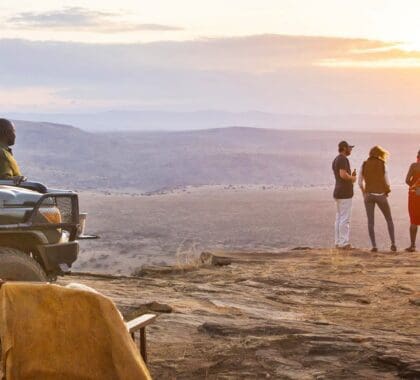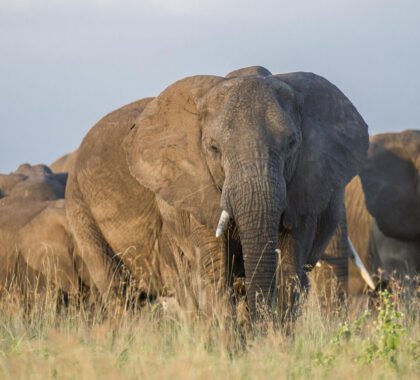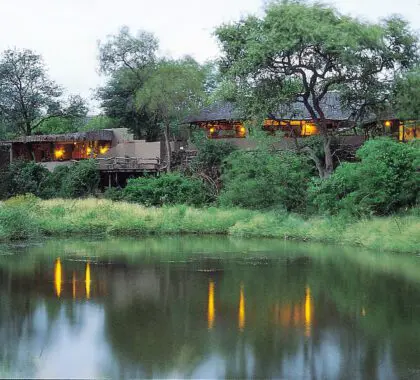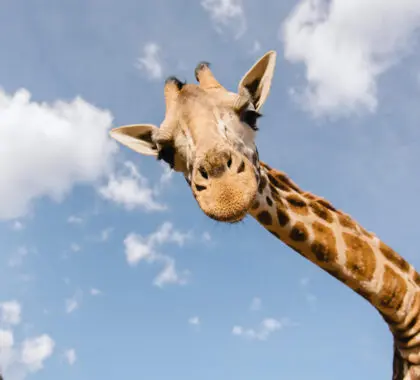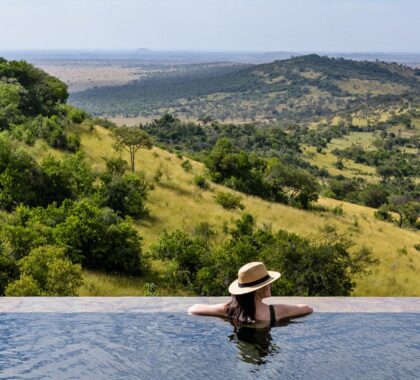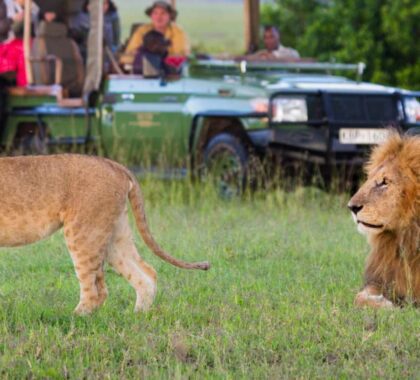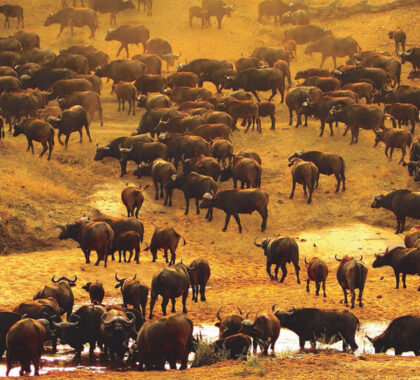Estimated reading time: 8 minutes
We believe that the most constructive way to travel sustainably in Africa is to go on safari. Not only are you avoiding the world’s tourist hotspots overrun by throngs of visitors, but by paying conservation fees – a small tariff worked into the cost of your safari that's transferred to national parks or indigenous landowners – you directly finance wildlife conservation and give local communities a tangible incentive to help protect Africa’s magical ecosystems.
Africa is also leading the way in the fight for a cleaner, eco-friendly world. Thirty-four African nations have either passed a law banning single-use plastics and implemented it, or have passed a law with the intention of implementation. Countries like Tanzania, Uganda, Kenya, Rwanda, Malawi and Zambia are front runners in the journey to creating a single-use, plastic-free world.
When thinking about how to travel sustainably, one of the simplest ways is to take less long-haul flights. But for those travellers who want to witness Africa’s mesmerising landscapes and remarkable wildlife, there are ways to go on eco-holidays in Africa and make your trip more sustainable.
What is Eco-Travel or Sustainable Tourism?
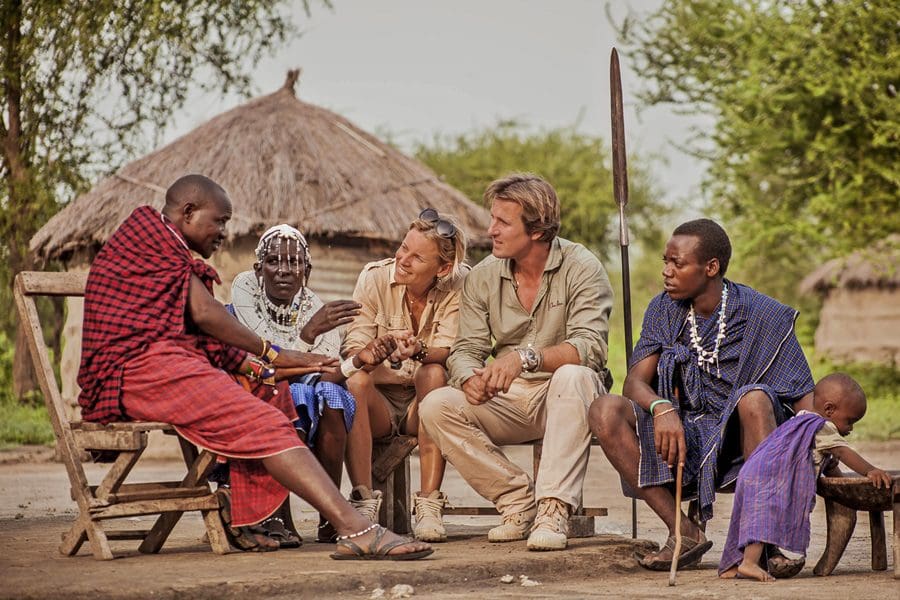
Eco-travel or sustainable tourism can be defined as responsible travel to natural areas that help conserve the environment and wildlife, and improve the well-being of local communities.
But ecotourism is more than just how travel companies manage their resources and the impact they have on the environment. It’s also about taking responsibility to help travellers understand the impacts of their actions, both while travelling and when they return home.
If travellers are looking for an environmentally friendly way to travel, travel companies should advise them to first think about what they consider to be good eco-tourism. Once they understand how to travel more sustainably, they’re in a place to ask their travel agents the hard questions about the products they are suggesting, as well as their own operations.
These questions could include:
- What is your company’s commitment to eco-tourism and how are you making this a reality?
- Are the suppliers you are recommending part of any regional or global eco-tourism initiatives?
- What are your suppliers’ employment and development programs?
- How does a camp or lodge minimise its use of resources and the impact it has on the immediate environment?
- Are you or your suppliers involved in any carbon offsetting programs?
- Do you or your suppliers support any environmental or conservation programs?
Why is Sustainable Travel Important?

Eco-tourism is essential to educate travellers about how to travel sustainably, provide funds for ecological conservation programs, aid the economic development and empowerment of local communities, and to foster respect for different cultures and human rights. Sustainable travel has become a critical endeavour for wildlife conservation and to ensure that future generations may experience destinations reasonably untouched by human intervention.
How to Travel More Sustainably in Africa?

Here are our best sustainable travel tips for an African safari vacation:
1. Fly Less, Stay Longer
Not only will you save money by taking fewer internal flights in Africa, but you will also help reduce the carbon emissions produced by your trip. Choosing just one safari park or game reserve to spend your entire vacation in is a great way to travel more sustainably – and enjoy an affordable African safari!
2. Use Efficient Means of Transportation
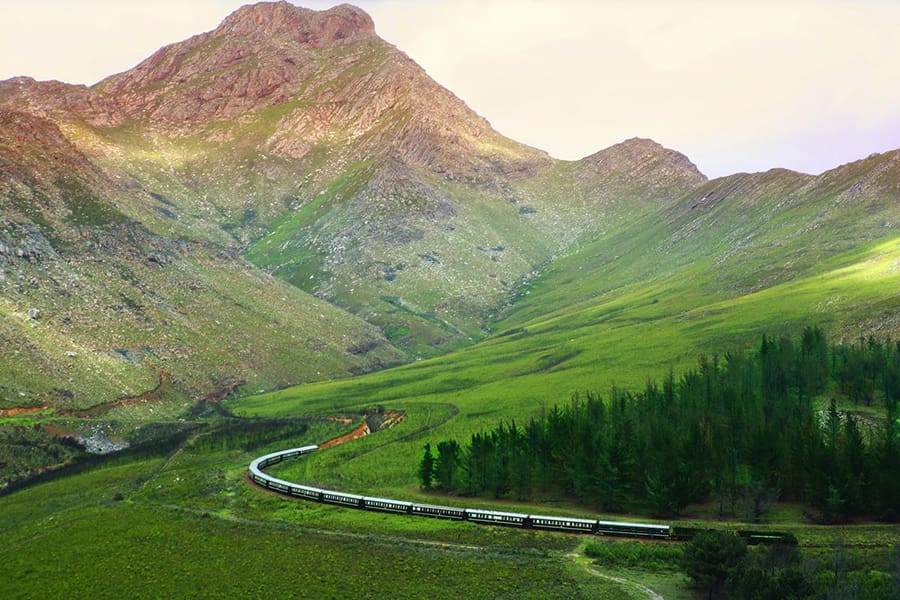
In addition to taking less flights in Africa, there are other ways to reduce your trip’s carbon emissions. Although all modes of transportation require energy, some are more efficient and cleaner than others – like going on an incredible train safari through Africa.
Luxury train travel is more than just moving from A to B; it’s a journey through Africa while experiencing absolute comfort and style. With the emphasis on gracious travel that’s reminiscent of a bygone era, a train safari affords you the time to absorb Africa’s most magnificent landscapes and stop along the way for a couple of game drives in search of the legendary Big 5. From short journeys throughout Southern Africa to epic odysseys from Cape Town to Dar es Salaam, this is a wonderful environmentally friendly way to travel.
3. Step Off the Safari Vehicle
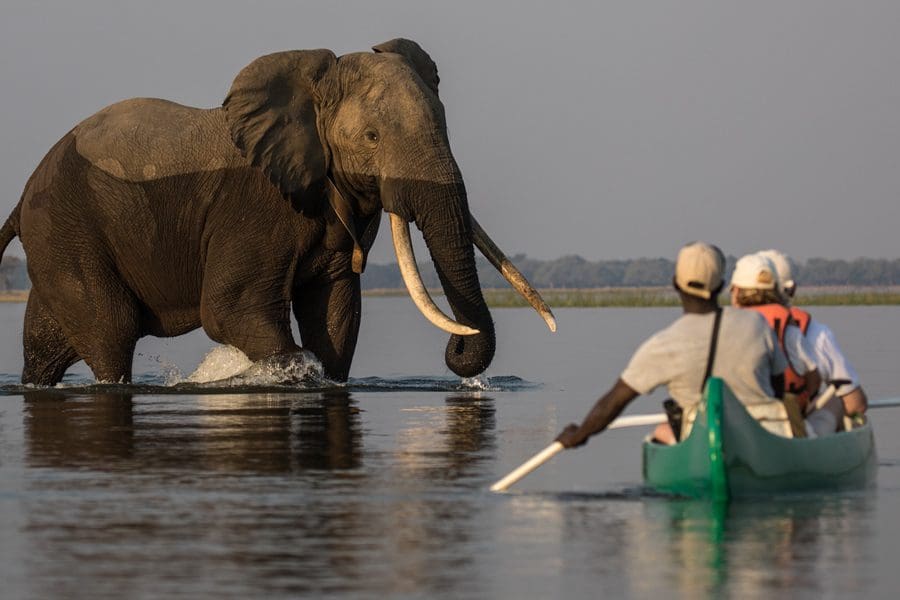
Africa takes on a new perspective when you experience it on foot, as the first explorers did. A walking safari is a unique physical, mental and spiritual adventure through nature, fully experiencing the sights, smells and sounds of the bush. Walking safaris can vary from a gentle, morning stroll to a multi-day journey from camp to camp – especially in Zambia’s South Luangwa National Park, the birthplace of the walking safari.
Other sustainable travel tips for reducing CO2 emissions on your safari would be to opt for activities like canoeing, cycling and horse riding. Furthermore, while the standard combustion engine of a safari vehicle does burn fuel, there are lodges and camps with electric safari vehicles that offer CO2 emission-free game drives in Africa.
4. Stay at Sustainable Accommodations
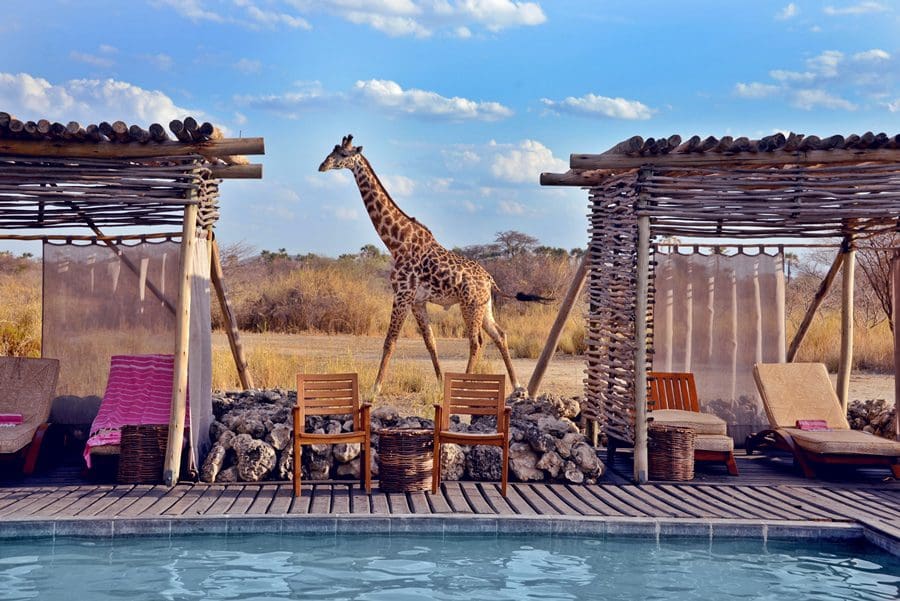

Choosing to stay at eco-friendly accommodation in Africa (safari lodges and camps that lessen their environmental impact and contribute to the wellbeing of local communities) is also how to travel sustainably in Africa. Do some research about the specific practices and policies that they’ve implemented and ask your travel agent to guide you in choosing the one that’s right for you.
Important questions to ask to show you are looking at how to travel sustainably are:
- Do they have water conservation practices in place?
- Have they eliminated single-use plastics?
- Do they promote diversity and inclusion?
- Do they hire local people for management roles?
- Do they prioritise local suppliers and sustainable producers?
- Do they promote responsible and ethical encounters with wildlife?
- Are they solar-powered?
- Do they support zero-waste practices?
- Do they have programs that help mitigate human-wildlife conflict and safeguard threatened species?
When thinking about how to travel sustainably in Tanzania, Kenya, Uganda or Rwanda, consider these eco-friendly lodges in East Africa.
5. Stay in a Private Conservancy or Reserve
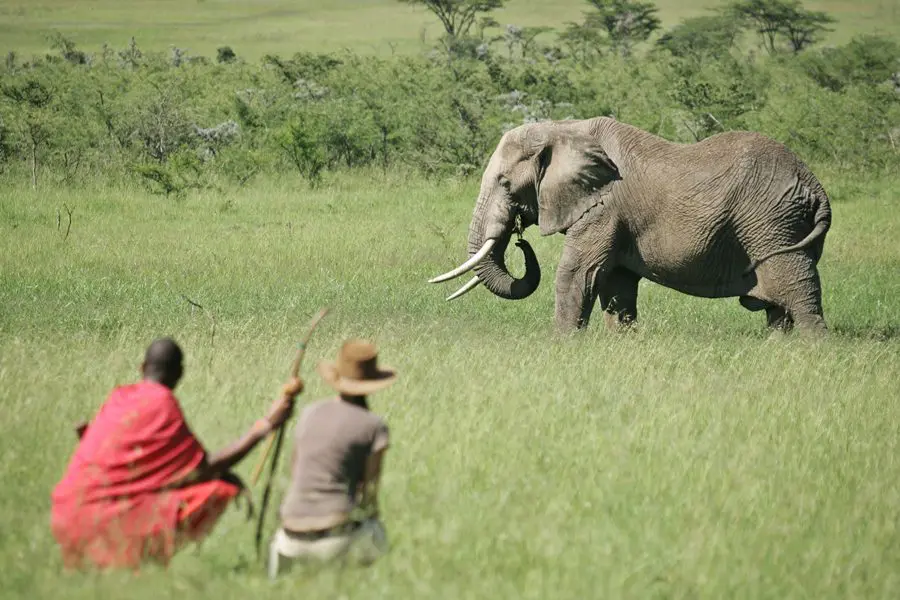

Staying in a private conservancy is one of the best sustainable travel tips for going on a safari in East Africa. A conservancy is a very specific form of land- and wildlife conservation, whereby local landowners enter into lease agreements with safari operators. This means that thousands of small-scale farmers and residents who own small parcels of land come together, pool their properties, and enter contracts with safari operators in return for monetary compensation, and other assistance like educational and healthcare programs, or livestock and grazing management.
By going on safari in a private conservancy, you directly finance conservation and give communities (like the Maasai and Samburu in East Africa) a tangible incentive to help protect Africa’s beautiful flora and fauna. You will also enjoy the following perks that are not available in national parks:
- Go off-road on game drives for more intimate wildlife sightings.
- Go on night drives to track Africa’s nocturnal animals like aardvark, honey badger and porcupine.
- Go on guided walking safaris.
- Enjoy exclusive, crowd-free game viewing – there are strict vehicle limits at animal sightings.
- Go fly camping – an adventurous, private and unique experience often offered as part of a walking safari.
For more information on how to travel sustainably in Africa, check out our favourite private game reserves and conservancies.
Ready to Plan Your Sustainable Safari?
Get in touch with our team of Africa Safari Experts for more sustainable travel tips and to help tailor-make a trip that’s right for you:

